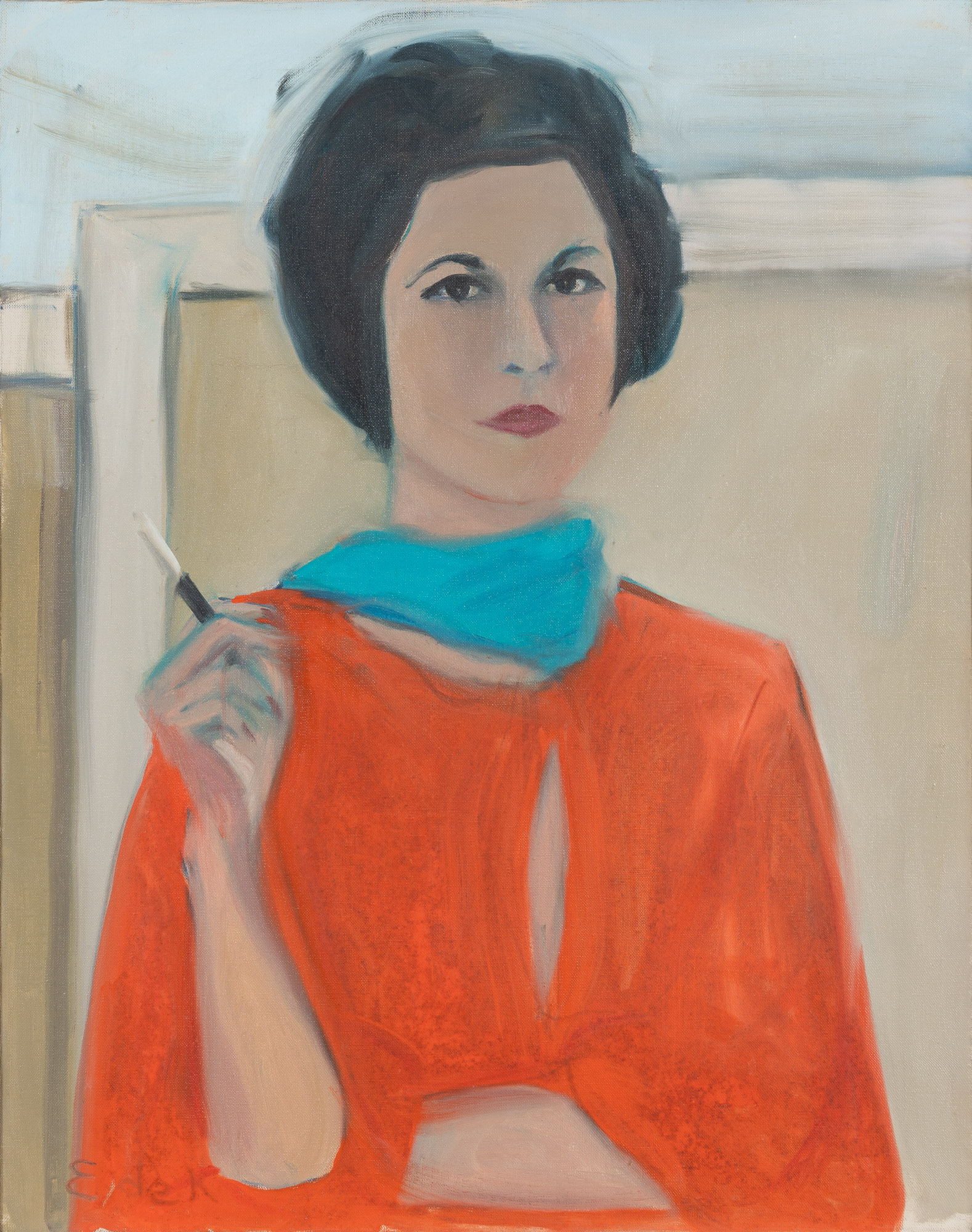
Elaine de Kooning
American, 1918-1989
Elaine de Kooning was a pivotal figure in postwar American art, celebrated for her dynamic fusion of Abstract Expressionism and portraiture. Born in Brooklyn, she studied at the Leonardo da Vinci Art School and the American Artists School before immersing herself in New York’s avant-garde scene. In 1943, she married artist Willem de Kooning, entering a complex creative and personal partnership that often overshadowed her own achievements.
Throughout the 1950s and '60s, Elaine forged a distinctive path, combining gestural abstraction with portraiture. Her 1963 portrayal of President John F. Kennedy, rendered in energetic strokes of green, blue, and gold, remains one of her most iconic works, capturing both likeness and vitality. Her subjects ranged from political figures to poets and dancers, always approached with sensitivity.
Elaine’s later work expanded into mythic and abstract territory, including her Bacchus series and cave art-inspired forms. A gifted writer and educator, she taught at institutions such as Yale, Carnegie Mellon, and the University of Georgia, and contributed critical essays to ARTnews, shaping discourse around her contemporaries.
Despite the challenges of being a woman artist in a male-dominated movement, Elaine de Kooning carved out a career marked by versatility, intelligence, and innovation. Today, her work is held in major collections and increasingly recognized for its energy and enduring influence.




